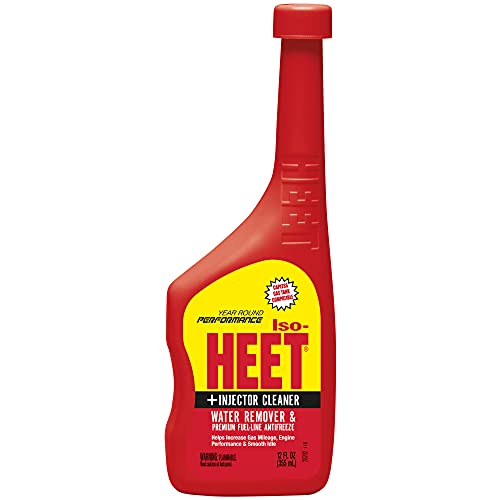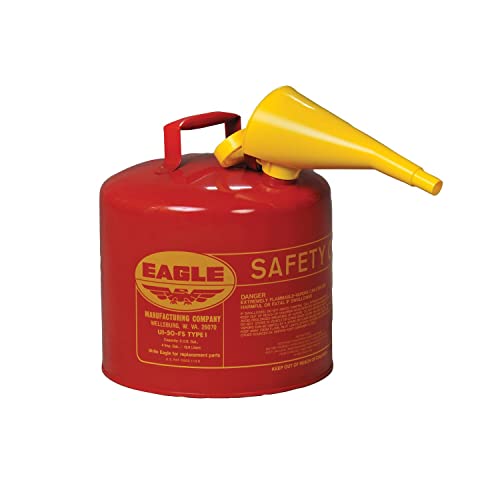Explore the freezing point of gasoline, factors affecting it, and how to prevent fuel issues in cold weather with additives and proper storage techniques.
Freezing Point of Gasoline
When it comes to gasoline, its freezing point is a crucial factor to consider, especially in colder climates. The freezing point of gasoline can vary depending on several factors, which we will explore in detail. Additionally, knowing the common freezing temperatures of gasoline can help you take necessary precautions to prevent any issues.
Factors Affecting Freezing Point
Several factors can influence the freezing point of gasoline. One significant factor is the composition of the gasoline itself. Gasoline is a mixture of hydrocarbons, and the specific combination of these hydrocarbons can impact its freezing point. Additionally, the presence of any impurities or additives in the gasoline can also affect its freezing point. For example, ethanol, which is commonly added to gasoline as an octane booster, can lower the freezing point of gasoline.
Another factor that can influence the freezing point of gasoline is the temperature at which it is stored. Gasoline stored in colder temperatures is more likely to freeze compared to gasoline stored in warmer temperatures. The type of container in which the gasoline is stored can also play a role in its freezing point. Metal containers, for example, conduct heat more effectively than plastic containers, which can impact the temperature at which the gasoline freezes.
Common Freezing Temperatures
Gasoline typically freezes at temperatures below 32 degrees Fahrenheit (0 degrees Celsius). However, the exact freezing point can vary depending on the factors mentioned above. For example, gasoline with a higher ethanol content may have a lower freezing point compared to gasoline without ethanol. In extremely cold temperatures, gasoline can freeze and form solid crystals, which can clog fuel lines and prevent the engine from running smoothly.
To prevent gasoline from freezing, it is essential to understand these factors and take necessary precautions. In the next sections, we will explore the effects of freezing gasoline and how to prevent it from happening.
Effects of Freezing Gasoline
Impact on Engine Performance
When gasoline freezes, it can have a significant impact on engine performance. As gasoline solidifies, it can clog fuel lines, filters, and injectors, preventing the proper flow of fuel to the engine. This can result in poor engine performance, reduced power output, and even stalling. In extreme cases, freezing gasoline can cause engine damage, leading to costly repairs.
To prevent these issues, it’s important to ensure that gasoline remains at a temperature above its freezing point. This can be achieved by using additives that lower the freezing point of gasoline or by storing gasoline in a heated area during cold weather.
Safety Concerns
In addition to the impact on engine performance, freezing gasoline can also pose safety concerns. When gasoline freezes, it expands, which can cause containers to rupture or leak. This can lead to spills, which are not only hazardous to the environment but also pose a fire risk.
To prevent safety issues related to freezing gasoline, it’s important to handle and store gasoline properly. Make sure to use approved containers for gasoline storage, keep containers tightly sealed, and store gasoline in a cool, dry place away from heat sources. Additionally, always follow safety guidelines when handling gasoline to reduce the risk of accidents.
Preventing Gasoline Freezing
Additives to Lower Freezing Point
When it comes to preventing gasoline from freezing in cold weather, one effective solution is to use additives that lower the freezing point of the fuel. These additives are specially designed to prevent the formation of crystals in the gasoline that can lead to solidification and blockages in the fuel system. By adding these additives to your gasoline, you can ensure that your engine runs smoothly even in freezing temperatures.
One popular additive used to lower the freezing point of gasoline is ethanol. Ethanol is a type of alcohol that is commonly blended with gasoline to improve its performance in cold weather. By mixing ethanol with gasoline, you can lower the freezing point of the fuel and prevent it from solidifying in low temperatures. This can help to improve the overall efficiency of your engine and prevent any potential issues that may arise from frozen gasoline.
Another common additive used to prevent gasoline from freezing is methanol. Methanol is a type of alcohol that has a lower freezing point than ethanol, making it an effective choice for cold weather conditions. By adding methanol to your gasoline, you can further lower the freezing point of the fuel and ensure that it remains liquid even in sub-zero temperatures. This can help to protect your engine and fuel system from damage caused by frozen gasoline.
In addition to using additives, there are also some storage tips that can help prevent gasoline from freezing in cold weather. By following these tips, you can ensure that your fuel remains liquid and your engine continues to run smoothly even in the harshest winter conditions.
Storage Tips for Cold Weather
- Store gasoline in a heated garage or shed to prevent it from freezing.
- Keep gasoline containers tightly sealed to prevent moisture from getting in and causing freezing.
- Avoid storing gasoline near sources of heat or flames, as this can increase the risk of fire.
- Use insulated storage containers to help maintain the temperature of the gasoline and prevent it from freezing.
- Consider using a fuel stabilizer to help protect the gasoline from freezing and extend its shelf life.
By following these tips and using additives to lower the freezing point of gasoline, you can ensure that your engine runs smoothly even in the coldest of temperatures. Take the necessary precautions to prevent gasoline from freezing and enjoy hassle-free driving in winter weather.


